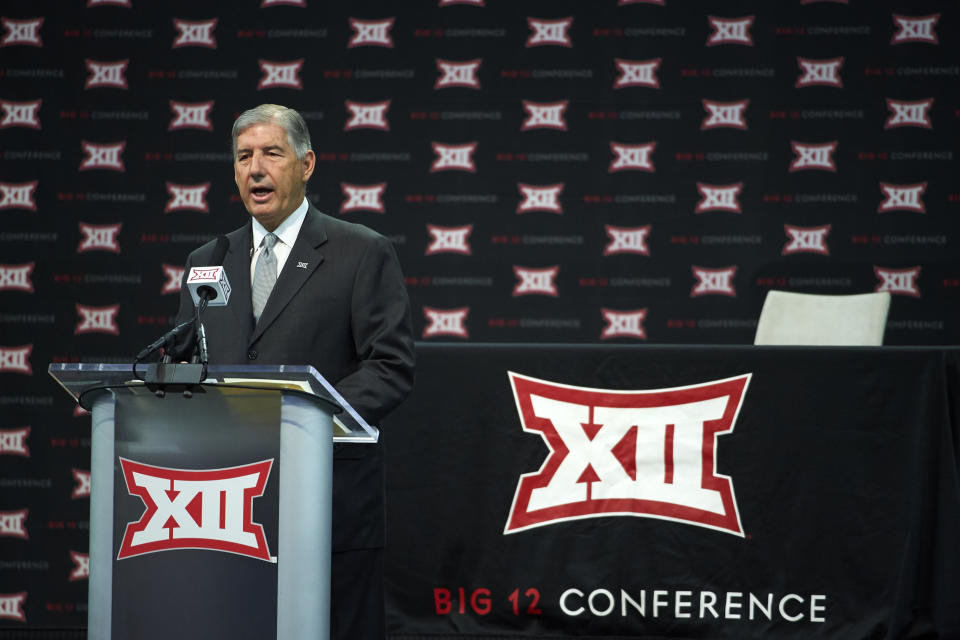Big 12 commissioner: College sports would be 'better off' if all transfers had to sit a year

You can count Big 12 commissioner Bob Bowlsby as someone who isn’t a fan of widespread immediate eligibility for transferring players.
Bowlsby said Tuesday at a college commissioners panel that he would, if he could, enact a rule that required all collegiate players to sit for a season when transferring. Only undergraduate transfers in baseball, basketball, football and hockey have to automatically sit out a season when transferring.
After the panel, Bowlsby told ESPN that college sports would have been “better off” if the transfer rules were the same across all sports. And he’s got a point. It doesn’t make sense that a track athlete could transfer immediately to a new school while a football player would have to get a waiver to play immediately at his new school.
"You'd still have transfers, but you'd have transfers that are less purely for athletic reasons and I think it would be more difficult to transfer," Bowlsby said. "People would think hard about whether they wanted to transfer if they had to sit out a year. They would think about whether or not they were planning to graduate and, in doing so, get their year back. I think it would cause them to think more about their initial choice of schools at the outset. I think all those are good things."
NCAA recently enacted new transfer protocol
College sports are currently in the middle of their first school year of the NCAA’s transfer database. Athletes who want to transfer from their current school are put into a database after making a transfer request. From there, other schools can contact the athlete about transferring. A player is not obligated to transfer when putting his or her name in the database, but a school can revoke financial aid at the end of the current term when an athlete submits a transfer request.
The NCAA has also been seemingly more lenient when it comes to granting immediate eligibility waivers to transferring players in football and basketball. Quarterbacks Justin Fields (Georgia to Ohio State) and Tate Martell (Ohio State to Miami) are able to play in 2019 after transferring this offseason. But tight end Luke Ford (Georgia to Illinois) was told he had to sit out the 2019 season after he transferred to be closer to his ailing grandfather.
Even if you’re someone who leans toward allowing players the opportunity to make one transfer without having to sit out a season, you have to admit Bowlsby’s idea is at least a good starting point for even more sweeping transfer changes. Especially if a player had the opportunity to get that extra season of eligibility back upon graduation.
As players’ rights get more and more attention, the NCAA’s lack of standard rules should as well. A common argument against paying players in revenue sports football and basketball is that players in non-revenue sports wouldn’t have that opportunity because their sports don’t bring in tons of cash. If you apply that same logic to the transfer process, it’s hard to argue that players in revenue sports should be restricted while non-revenue players aren’t.
– – – – – – –
Nick Bromberg is a writer for Yahoo Sports.
More from Yahoo Sports:

 Yahoo Sports
Yahoo Sports 
